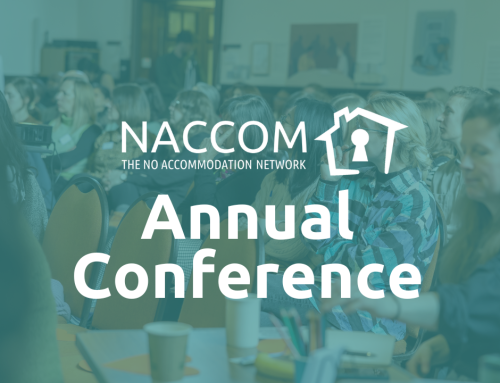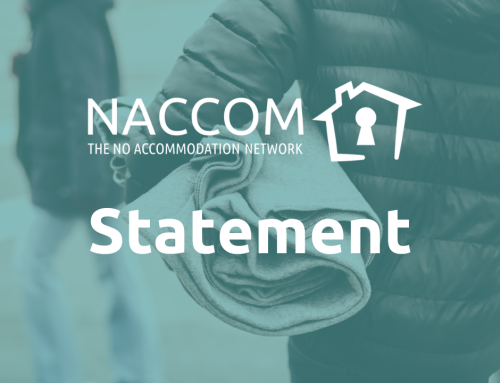NACCOM member Commonweal Housing has released new research that looks at the impact of hosting women experiencing homelessness.
The research, which is presented in a report entitled Hosting Her, highlights some of the benefits of taking a women-focussed approach to hosting, as well as the positive outcomes of women-only hosting schemes.
In the report, researchers Lisa Young and Tessa Horvath explore how host housing schemes – which enable members of the public to offer a room in their house to someone in need – can support some homeless women when delivered well. It identifies key considerations for existing schemes and those delivering women-specific host housing in the future.
The report finds that recruitment and vetting processes, training and support for hosts vary between existing hosting projects. Some schemes use DBS checks on all residents of the host property, whereas others do DBS checks on one host in the household only. One service described that some schemes do not use DBS checks at all, posing a risk to women’s safety.
21 of 23 interviewees from hosting and housing schemes, women’s services, guests and hosts, were supportive of women-specific hosting as a potential option for some women, reflecting on difficulties women face accessing appropriate accommodation. The report warns, however, that hosting must be delivered well and should not become a replacement for other housing options and specialist services for women.
[button link=”https://www.commonwealhousing.org.uk/host-housing-for-women” bg_color=”#3D9293″]ACCESS THE FULL REPORT BY COMMONWEAL HOUSING HERE[/button]
There are currently 30 hosting schemes in the No Accommodation Network. Information gathered in 2018-2019 from 27 NACCOM members providing hosting accommodation showed that 886 guests experiencing destitution were accommodated by a total of 675 hosts. NACCOM’s research also highlightS the challenges that hosting schemes in the network are currently experiencing. Cases that are referred are complex with higher levels of support needs, whilst legal cases take a long time to resolve. Of the 490 people whose length of stay was reported, 29% stayed for 1-6 months, and 31% stayed for more than 6 months.
For more information on hosting accommodation in the network, download our 2018-2019 Impact Report.




